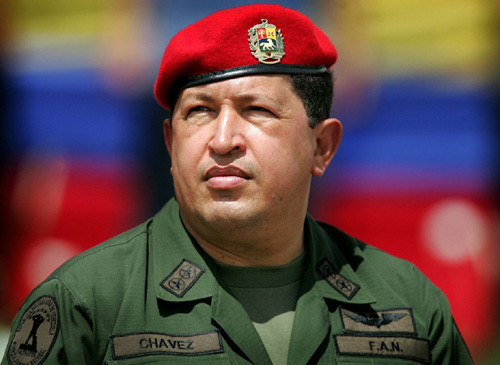Who will continue Hugo Chavez's socialist ideals?
Mr Chavez's departure and his successor will leave Venezuela in a state of uncertainty.
Venezuelan President Hugo Chavez has died at the age of 58 after battling cancer for more than two years. In a televised address lasting more than 30 minutes, Vice President Maduro repeatedly criticized the forces hostile to Venezuela, saying that "the enemies of Venezuela, to some extent, have harmed the health of the leader."
 |
| The passing of President Hugo Chavez is a great loss to the people and country of Venezuela. |
Hugo Chavez was diagnosed with cancer in June 2011. He admitted that he had been careless with his health. He often summoned cabinet ministers to the presidential palace late at night and drank up to 40 cups of coffee a day. He underwent chemotherapy, but he never revealed the exact location of the tumors or what kind of cancer it was.
Mr. Hugo Chavez has 2 daughters and 1 son, Hugo Rafael Chavez.
President Hugo Rafael Chavez Frias was born on July 28, 1954, in the rural town of Sabaneta, in the western plains of Venezuela, in a family of six children, of which he was the second. His parents were both teachers.
Mr. Chavez has been President of Venezuela since 1999, and was re-elected for a new 6-year term in October 2012. Due to his health condition, the Venezuelan Supreme Court decided to postpone his inauguration (which was supposed to be held on January 10).
President Hugo Chavez was considered the leader of the left-wing movement, receiving great support from the working people for his autonomy policy and popular housing, health and education policies. His death is a loss, not only to the Venezuelan people but also to the left-wing movement in general.
During his lifetime, Mr. Chavez used Venezuela’s abundant oil resources to implement social programs, including food subsidies, public housing, free public hospitals, and education programs. Poverty has decreased significantly under Mr. Chavez’s leadership, but critics say his government has spent hundreds of billions of dollars but has failed to revive the economy and the murder rate has risen, among the highest in the world.
Before returning to Cuba for his final treatment on December 10, 2012, Mr. Chavez proactively recommended Vice President Maduro to run the country "in the worst case scenario", and called on the people to vote for Mr. Maduro if he could not return.
Mr Chavez’s departure and his choice of Vice President Maduro as his successor will leave Venezuela in a state of uncertainty. Tensions are likely to rise as the opposition demands new elections and accuses government forces of being linked to foreign enemies.
According to the Venezuelan constitution, elections will be held within 30 days of President Chavez's death. National Assembly President Diosdado Cabello will take over as interim president. Observers say the upcoming elections could give opposition leader Henrique Capriles, who lost to Chavez, a new chance.
In the wake of Chavez’s death, the question loomed over which leader in the Americas would take his place as the voice of socialism and anti-Americanism in the region; who would replace the Venezuelan commander to determine the future of the Bolivarian Revolution. Two names were mentioned: French Vice President Nicolas Maduro, personally nominated by Chavez, and Diosdado Cabello, a former military officer and current president of the National Assembly.
Observers say that even if potential successors to Mr. Chavez always worship his ideology, it is not certain that socialist ideals in the style of Hugo Chavez will last forever in international politics./.
According to VOV - DT
